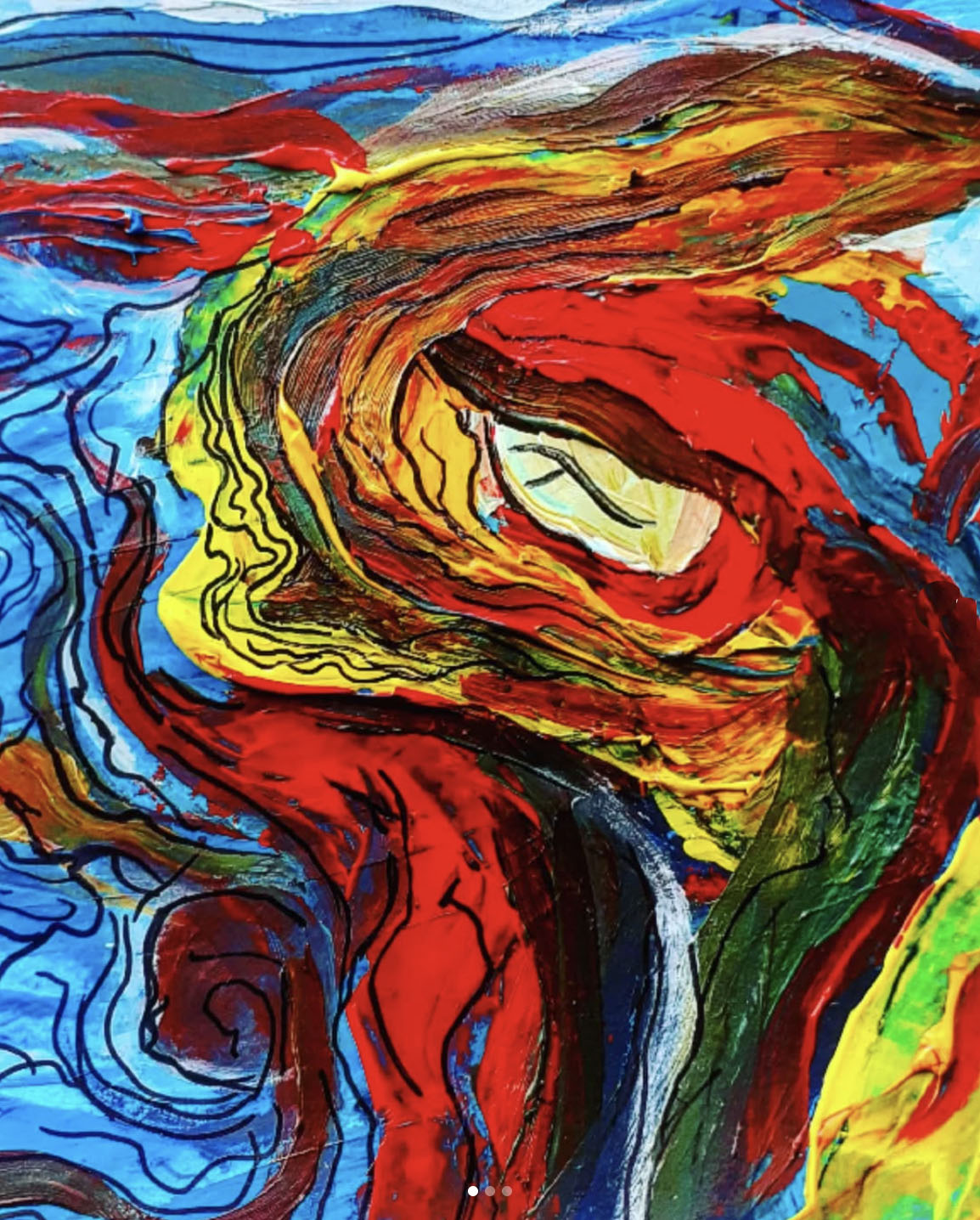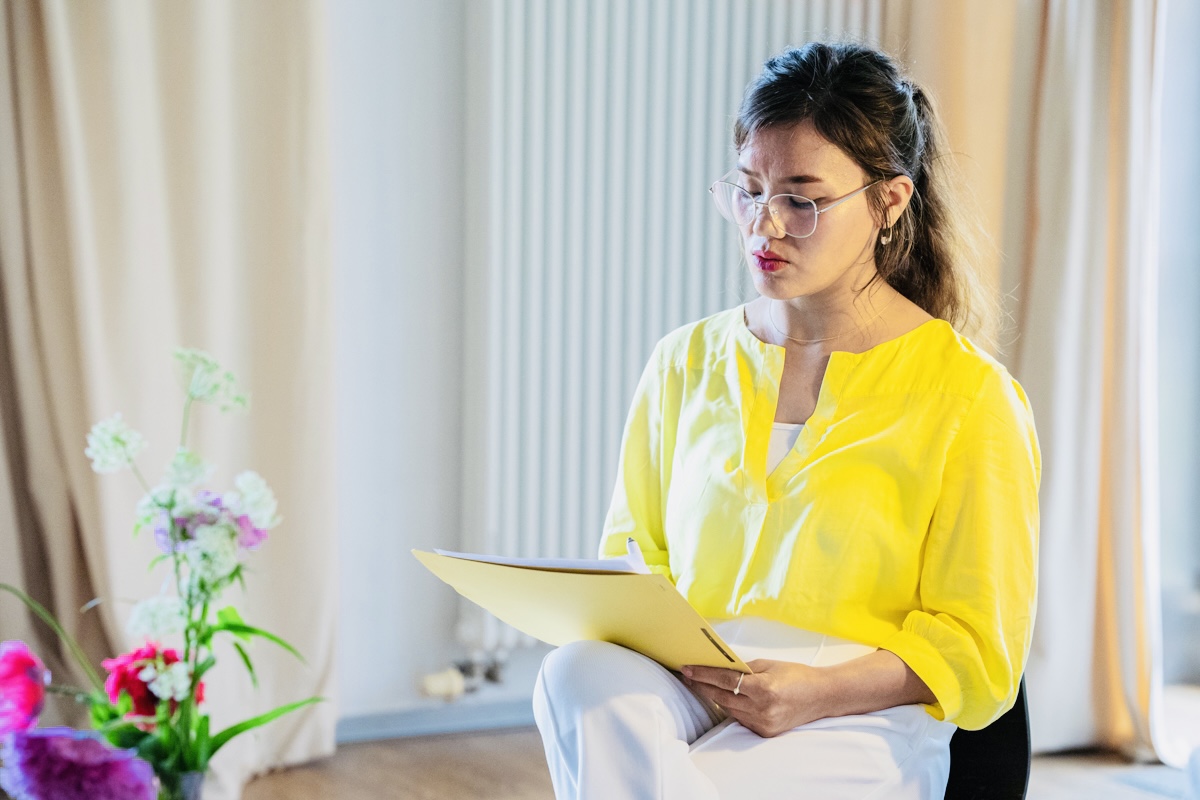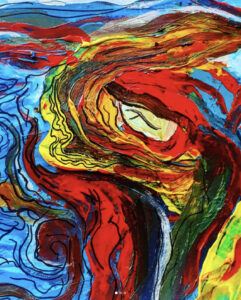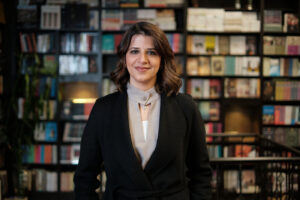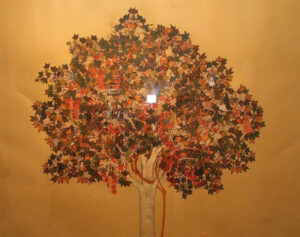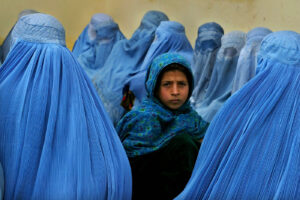Every month, a community of Afghan women writers, both in their own country and in the diaspora, meets online. Their book club is a safe haven where they seek respite from the harsh realities that surround them and indulge in a shared love of literature.
Down the phone line comes a voice from Kabul: “When I was reading this book I felt as if every woman in Afghanistan had lived every moment of it.”
Another woman from Herat responds, “The truth is that the challenges and struggles of women are similar in every society. In all societies, women have, for long periods, been denied the right to read, study, and work. But the painful part of today’s story is that Afghan women are still deprived of the right to education, work, and reading.”
Our online book club is reading The Patience Stone by Afghan-French writer Atiq Rahimi. A reader in our group adds the following critique: “Our concerns as women go beyond sexual desires. And the author has not been able to portray the Afghan woman properly in this story.”
I am sitting at my dining table in the kitchen, listening to a discussion about books among Afghan woman like myself who have tasted deprivation over the past three and a half years. This deprivation is something we have felt deep in our bones. Some of us have been denied education, work, and freedom simply because of their gender. At the time of writing, just yesterday, the UN published a report stating that eight out of every ten young women in Afghanistan are deprived of education, training, and employment. Others in our group are oceans away, severed from their parents’ embrace and the earth of their homeland in Germany, Iran, the UK, Canada, and Australia.
The book club is where women across time zones and borders, gather to read and discuss literature together. The group is called Paranda, which means bird or wing of a bird in Dari. It is made up of women who dream of writing and in doing so, of flying.
We have decided to read stories and engage in discussions as a means of survival amid suffocating circumstances. For some, the toxic environment of living under the Taliban and for others, living in countries far from home, reading has become their oxygen. It is no longer just a hobby or interest, but a lifeline, a heartbeat that sustains life, a tool against ongoing oppression. Perhaps like embers beneath ash, reading is akin to a spark ready to ignite a flame at the faintest breath.
At the end of last year, the Taliban issued a decree banning the reading, publication, and sale of 400 book titles in Afghanistan. This decree may well rank amongst the most painful and darkest chapters in the history of Afghanistan. It violates the most intimate moments of modern life, where reading is considered as natural to the everyday routine as drinking water or eating lunch. In times like these, reading is not just a form of entertainment or escapism, it has become a form of resistance against the current system, one in which half the population is denied their most basic human rights: education, employment, and freedom.
Activities as mundane as reading and discussion for many around the world have become for us in Paranda tools of protest — symbolic and quiet resistance that takes place in the backrooms of homes, alleyways, private sanctuaries, and in group gatherings. These small acts of clandestine struggle are like tiny arteries, which keep the heart of the people beating. In totalitarian and dictatorial regimes, choosing to follow your own path is seen as a crime. These governments of repression, censorship, and control, essentially strip citizens of their right to live and breathe. In such circumstances, every act is considered a crime; they become, by nature, forms of protest. Under the boots of tyranny, we read, we resist.
Our small circle of readers fights bravely to survive and endure across continents. We mock the war-driven world of men and challenge it with the simplest methods. Each month, we come together for a couple of hours to talk about the book we’ve all been reading. We stroll through the backstreets of Kabul with a woman without a name, her identity defined by four blue walls and curtains patterned with migrating birds. We are her shadow: the woman from Atiq Rahimi’s The Patience Stone.
In another session, we are with Lila, or ‘Tequila,” as she calls herself, the protagonist of 10 Seconds and 38 Minutes in This Strange World by Elif Shafak. We walk the streets of Istanbul’s red-light districts, past Saint Anthony’s Church, the synagogue, the Sufi lodge, and the graveyard for unidentified bodies. We listen to the stories of Jamila, Zeinab, and Sinan, and share their pain and sympathy. With each passing day, we feel ourselves growing closer to the women of the world.
Along the way, we travel with Spôzhmai Zaryab to eastern France, filling Simone’s loneliness by retelling her story. Finally, the recent passing of Mario Vargas Llosa pulls us to Latin America. His novel, The Time of the Hero, introduces us to Peru and the Leoncio Prado Military Academy.
It is here that one sees the hidden power of reading. History shows us that everything can be taken from a person, except their imagination. Reading brings our dreams and imagination to life, allowing us to envision an alternative future for ourselves. As Margaret Atwood says in The Handmaid’s Tale, “[Their] real fear is of our imagination taking flight.”
Only through reading can one travel freely, without a passport across borders and time, even from the darkest corner of the world. Reading dissolves borders, blends colors and bridges oceans. In the most dictatorial and repressive times, it plants the seeds of freedom and hope. These seeds take root and sprout even in the shadows of the earth.
The Paranda Book Club is part of Paranda, a global initiative from Untold Narratives supported by KfW Stiftung to connect and amplify the voices of women writers from Afghanistan and those in the diaspora.



